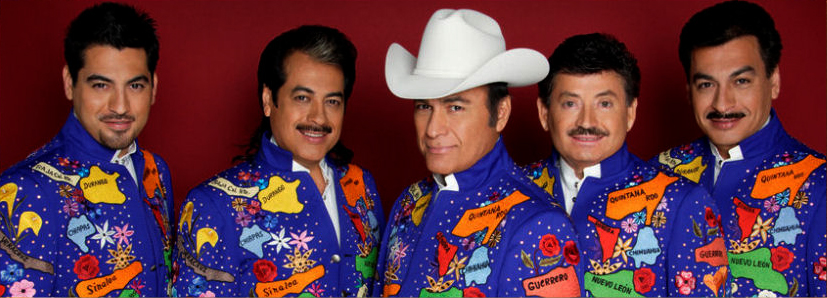Los Tigres del Norte were featured in the documentary film, Al Otro Lado: To the Other Side. This film was based on songs, drugs and dreams along the U.S./Mexico border. The film follows Magdiel, an aspiring corrido composer from the biggest drug capital of Mexico. He faces difficulty when it comes to choosing a path for his life; to traffic drugs or to cross the border illegally into the United States.
Click
here to watch the trailer.
Los Tigres del Norte's main member, Jorge Hernández was interviewed on the groups decision to be featured in this film:
Q: Why did you decide to participate in the film "Al
Otro Lado"? What message do you hope Mexicans, Mexican Americans and
non-Mexican Americans get out of the film?
A: We participated because we found that this documentary offered an
opportunity to yet again express the truth — the truth of Los Tigres del
Norte. I had the good fortune of meeting Ms. Almada, who approached us
and shared her vision for the documentary with us, and we found it to
be a good vehicle to express the truth of all our fellow Mexican
citizens who wish to come to this country.
As for the message, I would like all immigrants to be aware of the huge
risks that are present when one leaves their homeland, and to affirm
that the danger is not a myth, it is real.
(Reference)
In this article in the
New York Times, the author Jon Pareles discusses how Los Tigres del Norte have "weightier topics in mind" to sing about. In the documentary, Los Tigres are featured singing in one of their concerts as their fans cheer while they sing the lyrics: "They've yelled at me a thousand times to return to my country/ because there is no room for me here/ I'd like to remind the gringos/ I didn't cross the border, the border crossed me/ America was born free, man divided it."
Pareles says the documentary continuously "crosses the border to present music that's inseparable from social conditions, particularly the poverty and unemployment in Mexico that lead some people to try to emigrate and others to the quick, dangerous profits of crime." "Al Otro Lado" really shows the struggles these people have undergone for their lives. They dream of coming to America for better lives, but more often than not, the journey to arrive here and stay here is a struggle they underestimate.
The author creates the parallel between "gangsta rap" and the narcocorridos created by Mexican-American musicians. He says both genres touch upon crime as a way of survival. Pareles says both present tales of "desperation and violence." The author makes the connection of most rappers promising to "keep it real," while several norteño artists promise to "speak without lies." It is interesting to see how common it is for musicians to sing about the reality of their lives. If you listen to the lyrics that an artist creates, you can discover their struggles.
(Reference)











